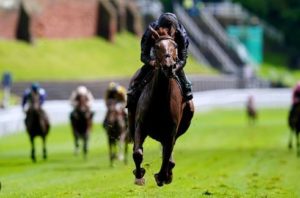Betting on the Royal Ascot: A Guide
 One of the world’s most prominent horse racing competitions, the Royal Ascot draws elite racehorses, renowned jockeys and avid fans who search for the best royal ascot odds online. The desire to wager on the races increases as anticipation for this yearly event rises. This thorough guide will give you the necessary knowledge and advice to improve your betting experience if you plan to wager on the Royal Ascot race.
One of the world’s most prominent horse racing competitions, the Royal Ascot draws elite racehorses, renowned jockeys and avid fans who search for the best royal ascot odds online. The desire to wager on the races increases as anticipation for this yearly event rises. This thorough guide will give you the necessary knowledge and advice to improve your betting experience if you plan to wager on the Royal Ascot race.
Understanding the races
The Royal Ascot spans over five days, featuring a range of races each day. It’s crucial to familiarize yourself with the different types of races . This will help you to make informed betting decisions. The event includes prestigious races such as the Queen Anne Stakes, King’s Stand Stakes and Gold Cup. Each race has its unique characteristics. This includes distance, surface and age requirements for the competing horses. Take the time to study the race schedule. Understand the nuances of each race to make well-informed bets.
Researching horses, jockeys and trainers
To improve your chances at the Royal Ascot, research is crucial. Study form guides to learn about horses, jockeys, and trainers’ performance history. Focus on consistent form, success on similar track conditions, and reputable trainers and jockeys. Analyzing past performance and understanding current form allows for informed betting decisions.
Track conditions and weather
Track conditions and weather play a significant role in horse racing outcomes. The Royal Ascot takes place on a turf course. Hence, weather changes can significantly impact the condition of the track. Horses may perform differently on firm ground compared to soft ground. Keep an eye on the weather forecast leading up to the races. Consider how the track conditions may affect the performance of the horses. Some horses excel in specific conditions. Hence, this knowledge can provide you with a valuable edge when placing your bets.
Types of bets
The Royal Ascot offers various betting options to cater to different preferences and risk levels. Familiarize yourself with the different types of bets available, such as win, place, each-way, exacta, trifecta and more. Each bet has its own set of rules and potential payouts. Understanding the intricacies of these bets will allow you to select the ones that align with your betting strategy and increase your chances of securing a win.
Setting a budget and managing bankroll
Before diving into Royal Ascot betting, setting a budget and establishing a bankroll management strategy is important. Determine the amount of money you will allocate to your betting activities and stick to it. Avoid chasing losses and betting more than you can afford to lose. Divide your bankroll into smaller units and avoid placing overly large bets. By practicing responsible bankroll management, you can enjoy the betting experience while minimizing the risk of significant financial losses.
Taking advantage of promotions and offers
Bookmakers offer promotions to attract bettors during major horse racing events like the Royal Ascot. Look out for enhanced odds, money-back guarantees, and free bets. Utilize these offers to increase potential returns and enhance your betting experience.
Observing live betting opportunities
Live betting, also known as in-play betting, allows you to place bets on a race while it is in progress. Live betting during the Royal Ascot adds excitement and allows adjustments based on real-time race developments. Monitor the live betting markets and seize favorable opportunities as the races unfold.
Conclusion
Betting on the Royal Ascot is thrilling for horse racing enthusiasts and bettors. To make informed decisions, understand the races, research horses, jockeys, and trainers, analyze track conditions and weather, and familiarize yourself with various bet types.
 The record for the widest winning margin is the history of the Derby still belongs to Shergar, trained by Sir Michael Stoute, who sauntered to a 10-length victory in 1981. However, the one-sided nature of that renewal, which led commentator Peter Bromley to exclaim, ‘You need a telescope to see the rest!’, resulted in a rather pedestrian winning time of 2:44.21.
The record for the widest winning margin is the history of the Derby still belongs to Shergar, trained by Sir Michael Stoute, who sauntered to a 10-length victory in 1981. However, the one-sided nature of that renewal, which led commentator Peter Bromley to exclaim, ‘You need a telescope to see the rest!’, resulted in a rather pedestrian winning time of 2:44.21. The Oaks is quickly approaching and with this race being the second-oldest of the five Classic races, you’re sure to see the best horse racing has to offer down at Epsom. The Oaks features the best Three-year-old fillies the sport has to offer and we’ll see what the
The Oaks is quickly approaching and with this race being the second-oldest of the five Classic races, you’re sure to see the best horse racing has to offer down at Epsom. The Oaks features the best Three-year-old fillies the sport has to offer and we’ll see what the